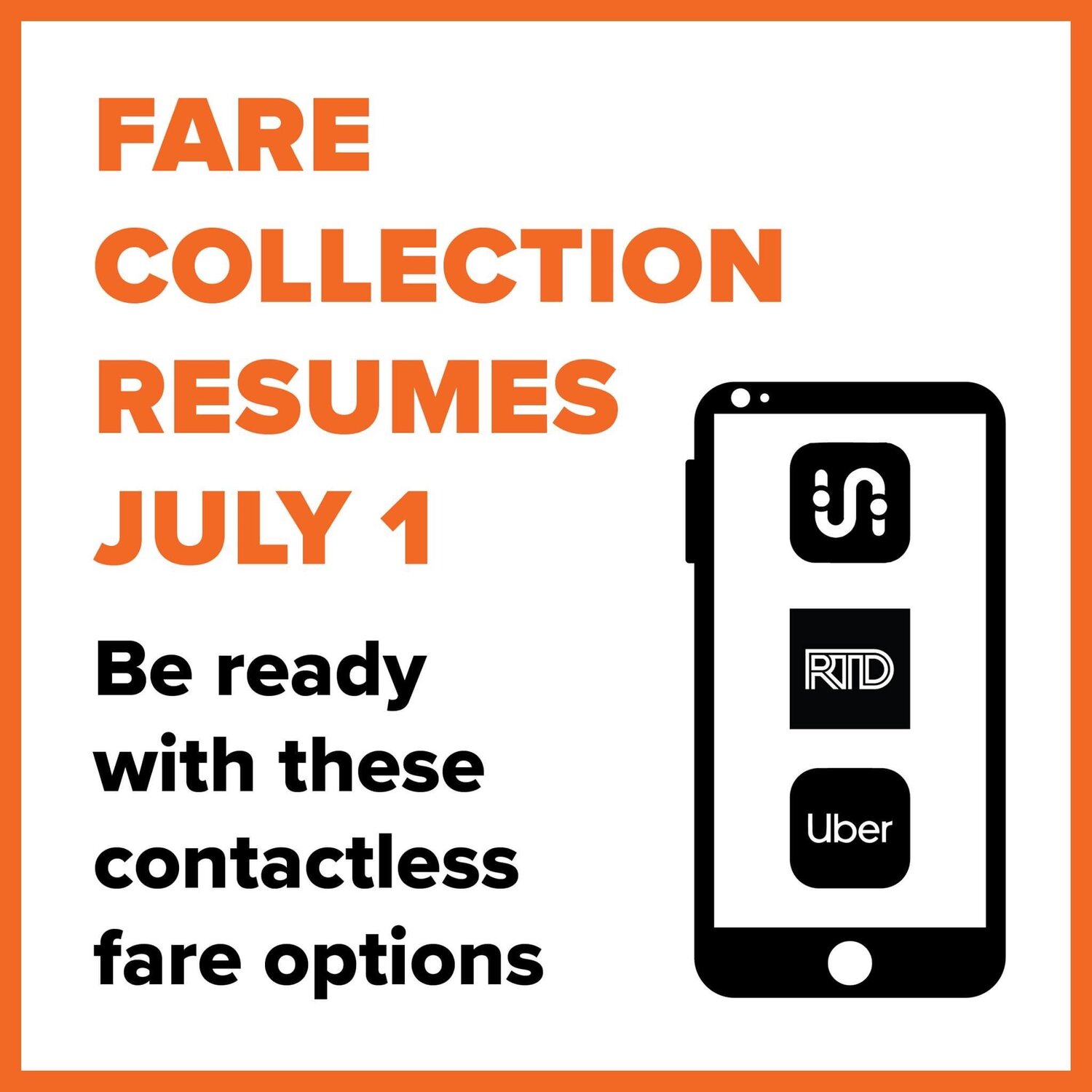Fares and front-door entry return to RTD as ridership recovers

Covid-19 has caused major changes at RTD, the Regional Transportation District that provides public transportation to eight metro-area counties covering 2,342 square miles and just over half of Colorado’s population.
As of July 1, RTD has reinstated fare collection on all services and front-door boarding on buses.
This marks a change from the covid-19 precautions instituted April 5 that included rear-door entry of buses to allow social distancing for bus operators, and free fare for passengers.
“It’s been a supreme change in how we provide transit service,” said RTD spokeswoman Pauletta Tonilas.
During the pandemic, ridership dropped from an average of 370,000 boardings per weekday to 110,000, Tonilas said. As Colorado has begun to re-open, it has grown back to 140,000 boardings per weekday.
With growing ridership and the return of fares and front-door entry, RTD is maintaining social distancing measures.
Both passengers and operators are required to wear masks and the number of riders is limited to 15 on smaller buses, 20 on standard buses, and 30 people per train car, Tonilas said.
Additional safety measures include:

- Daily cleaning of buses and trains
- Plastic face shields being provided to operators
- The fabrication of larger shields to protect bus operators
- Contactless payment options including the RTD Mobile Tickets app, the Uber app and the Transit app, to avoid contact with the fare box on buses
“If our operators and our riders both wear masks, and respect that social distancing, then we’re very confident we can provide a safe ride,” Tonilas said.
Discount RTD fares
RTD encourages riders that may be impacted by the return of fares to seek available discounts on the their website.
These include discounts for:
- youth ages 6-19 (70% discount)
- seniors ages 65+ (50% discount)
- individuals with disabilities (50% discount)
- income-based “LiVE” program (40% discount)
The LiVE program provides a 40% discount to individuals between the ages of 20 and 64 at or below 185 percent of the Federal Poverty Level, and are processed through PEAK, the state’s public benefits website.
As reported by Denverite, the return of fares may present a challenge to people experiencing homelessness in the RTD area, and others who benefited from nearly 3 months of free ridership.
